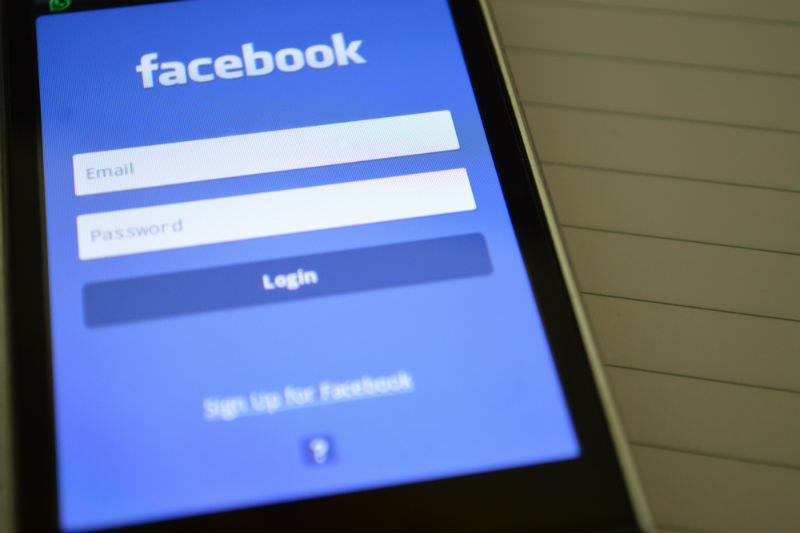On 18 February, Australians woke up to the following message on a platform they have come to regard, in many instances, as the place to get news and share news content. ‘This post cannot be shared,’ came the curt message from Facebook. ‘In response to Australian government legislation, Facebook generally restricts the posting of news links and all posts from news Pages in Australia. Globally, the posting and sharing of news links from Australian publications is restricted.’

The rather rude note is striking a reminder of those old, gangster-styled threats issued by companies keen to protect their share of the marketplace against the popular policies of sovereign states. It is conduct more commonly associated with entities such as the United Fruit Company, whose interests were backed by the United States in a coup against President Jacobo Arbenz of Guatemala in 1954. The Octopus, as that company came to be known as in Latin America, sneered at sovereignty, threatened the security of governments and always ensured its profit margins were never compromised.
Facebook’s effort at a coup is not quite as violent, and certainly not quite in that league. Instead of retaining its control of a fruit market, or preserving an oil monopoly, it harnesses another resource: data generated by users. ‘To feed its AI and algorithms,’ wrote Roger McNamee, who formerly advised Facebook CEO Mark Zuckerberg, ‘Facebook was spying on everyone, including people who do not use Facebook.’
Harvard academic Shoshana Zuboff considers Facebook’s influence, along Google, to be more dangerous than that. It is anti-democratic and exploitative of human users using surveillance capitalism, ‘the default model for capital accumulation.’ Any regulator or sovereign state keen to challenge the way the Silicon Valley giant gathers, monetises and uses that data will face their ire.
Australian Prime Minister Scott Morrison, in responding to Facebook’s action to ‘unfriend’ Australia, was keen to work the theme of Big Tech versus government. ‘These actions will only confirm the concerns that an increasing number of countries are expressing about the behaviour of Big Tech companies who think they are bigger than governments and that the rules should not apply to them.’ Western Australian Premier Mark McGowan even went so far as to liken the conduct of Facebook to North Korea more ‘than an American company’, wishing that the US government would intervene.
Facebook’s actions are a meaty response to the proposed News Media Bargaining Code. The draft legislation ostensibly pushes tech giants and news outlets to engage in commercial negotiations in coming to binding agreements on distributing revenue generated by news content. As the Australian Competition and Consumer Commission puts it, the Code would ‘address the fundamental bargaining power imbalance between Australian news media businesses and major digital platforms.’ Such an asymmetry of relations has led to news outlets ‘accepting less favourable terms for inclusion of news on digital platform services than they would otherwise agree to.’
Within the Code, the tech giants find two things particularly irritating: the advance notice that companies will have to give media organisations on any change in their search algorithms and the inclusion of an arbitration mechanism. The latter will come into play to determine the remuneration in question should the parties find themselves unable to reach an agreement. Facebook, and in this it has Google on its side, feels that individual, market-driven arrangements should be used.
'The effect on community organisations, independent media and marginalised groups who have come to rely on sharing content via Facebook will be hard to exaggerate.'
While Google has yet to make good its threat to withdraw its search engine from Australia, making, instead, revenue-sharing deals with news companies as part of its News Showcase, Facebook has gone for the jugular.
Facebook has intentionally used the broadest definition of ‘core news content’ in the draft Code, which is material that ‘reports, investigates, or explains issues that are relevant in engaging Australians in public debate’. As a result, information on emergencies (floods, bush fires) that would otherwise be available was initially blocked. Material from legal services, women’s shelters and health organisations was similarly blocked. Government information on the novel coronavirus also suffered the same fate, though the company insists it did not intend to ban government pages.
The guarantors of accuracy in reporting and information fear the triumph of misinformation. NGOs representing vulnerable communities, such as Save the Children, have lost an information line to supporters and the broader community. ‘Every minute our page is down is another minute our message isn’t getting out about the needs of children,’ claimed Save the Children CEO Paul Ronalds in a statement.
For all these protests, the legislation is laden with problems. As has been pointed out by sharper authorities of the digital market, the Code is a means of subsidizing the news industry by shifting the burden to the social media platforms. This leaves governments free of any funding concerns about nourishing a healthy fourth estate. Big tech companies do not make much per se on ad clicks regarding news-related items. UNSW academic Richard Holden suggests that traditional media outlets have declined by losing classified advertising revenue while another is in the ascendancy, ‘rather than tech companies outcompeting traditional media in the same industry.’
px.jpg)
Other countries are looking on with worried bafflement. In the US itself, there are concerns, as voiced by Democratic Congressman David Cicilline and chair of the House of Representatives Antitrust Subcommittee, that ‘Facebook is not compatible with democracy.’ Such conduct was ‘the ultimate admission of monopoly power.’ Julian Knight, the British parliamentary chair of the digital, culture, media and sport committee thought the action that of a ‘bullyboy’, ignoring ‘a desire to go further among legislators around the world.’
But the battle between these Silicon Valley giants promises to be more complex. The Code might be poor in terms of economic rationale, but the Morrison government is hoping for the political sell while avoiding such sound policies as taxing big tech. Addicted and habituated users of Facebook will now have to find alternative platforms to share news content, not in itself a bad thing.
For all that, the effect on community organisations, independent media and marginalised groups who have come to rely on sharing content via Facebook will be hard to exaggerate. The National Aboriginal and Torres Strait Islander Legal Services sees the blocking content on its site as a human rights issue, shutting off a vital information avenue. The Central Australian Aboriginal Congress (CAAC) has already excoriated Facebook for blocking an essential route ‘for health promotion … at a crucial time [the COVID-19 vaccination rollout].’
This messy standoff between Canberra and Facebook has led digital rights activist Samantha Floreani to conclude that ‘several bad faith actors’ are at play here: those backing the problematic Code, with its defective presumptions, and the business model of Facebook, which is likely to be spared.
 Dr Binoy Kampmark is a former Commonwealth Scholar who lectures at RMIT University, Melbourne.
Dr Binoy Kampmark is a former Commonwealth Scholar who lectures at RMIT University, Melbourne.
Main image: Smartphone shows Facebook app (Pixabay)